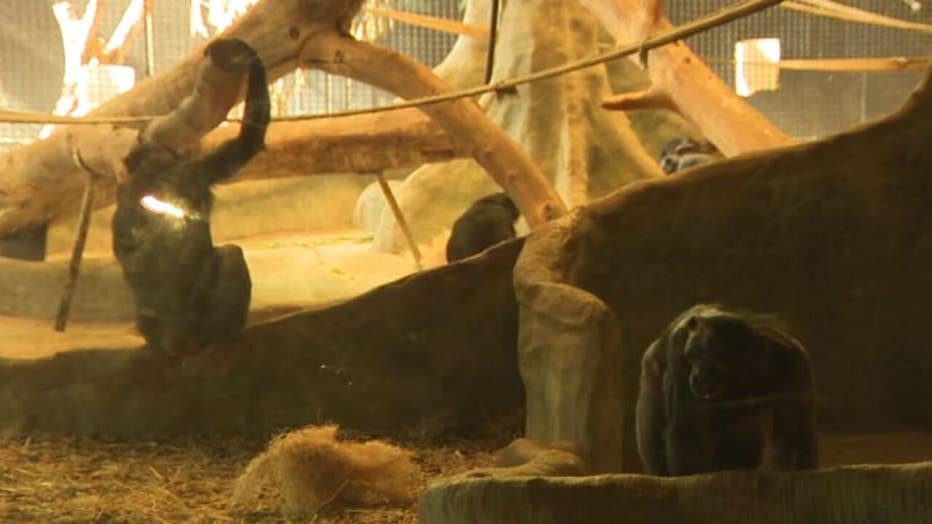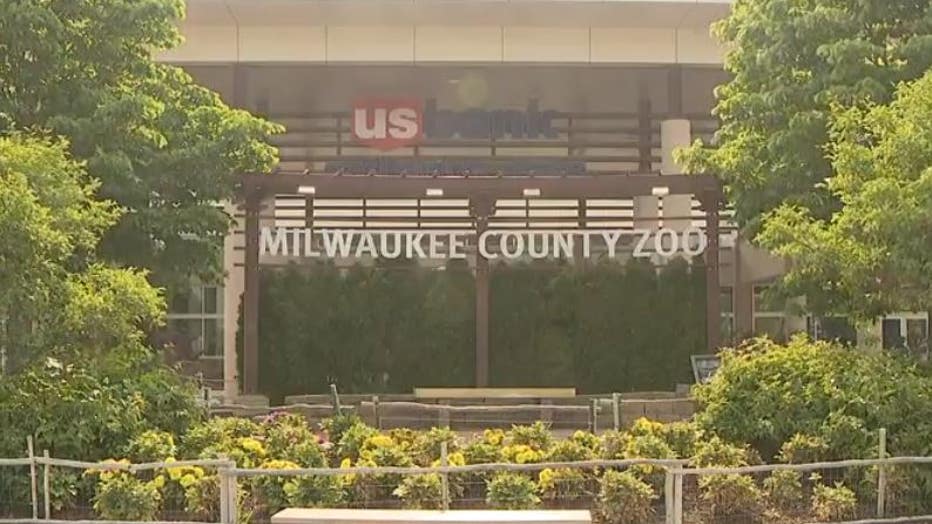Milwaukee air quality, some zoo animals moved indoors
Milwaukee air quality impacts zoo animals
Southeast Wisconsin air quality concerns amid Canadian wildfires are sparking conversations and questions many of us have never had to deal with. They even had to make changes at the Milwaukee County Zoo.
MILWAUKEE - Southeast Wisconsin air quality concerns amid Canadian wildfires are sparking conversations and questions many of us have never had to deal with.
The unhealthy air quality has led to closings and cancellations. Whether you’re especially at risk or not, you’ve likely noticed some kind of impact.
They even had to make changes at the Milwaukee County Zoo.
"(Tuesday), we didn’t go outside at all because of the same thing," said Maribel Villa, visiting the zoo on Wednesday, June 28. "It was really bad."
The wild weather in Wisconsin can impact all who breathe the air.
"The smell of it, even with our dogs when we take them out, they can feel it," said Villa.

Milwaukee County Zoo
The poor air quality prompted a change in routine for zoo animals, too.
SIGN UP TODAY: Get daily headlines, breaking news emails from FOX6 News
"(Wednesday), in particular, we have kept our bonobos, orangutans, gorillas and siamangs indoors, just because they are particularly susceptible to respiratory issues," said Kimberly Graves, Milwaukee County Zoo.
Graves said amid the air quality concerns, zookeepers are keeping an eye on individual animals, as well, ready to bring them in if needed during this out-of-the-ordinary scenario.
"There’s definitely some conversations, I believe, that we’re having for the first time," said Graves.
Graves said those emergency preparedness conversations include county leaders and other zoos from across the country.

Milwaukee County Zoo
"Definitely something we haven’t been used to," said Jonathan Rubin, ER physician at Froedtert & the Medical College of Wisconsin.
The precautions, of course, extend to humans, too.
"At the levels we’ve been at the last couple days, I would say even healthy folks should avoid any strenuous exercise outside," said Rubin on Wednesday.
Rubin said Froedtert's emergency departments saw a spike in patients coming in with lung-related complaints Tuesday when health officials warned of dangerous air quality levels. He added that the groups most at risk are the young and old and people with underlying lung and heart issues.
"The biggest concern is those particulates in the air will trigger an asthma attack, for example," said Rubin. "For healthy people, again, for the most part, it’s going to be some temporary irritation."

Milwaukee County Zoo
If anyone has symptoms that don’t improve or shortness of breath, he said they should seek medical care.
At the zoo, there are options for human visitors, too, in the form of free N-95 masks.
"You can still see plenty of animals," said Graves. "We have masks available if you would like, but our animals, indoors and out, would still love to see you."
Health officials are recommending N-95 masks as the best protection.
For your animals at home, the American Veterinary Medical Association recommends keeping an eye out for signs including coughing and difficulty breathing and keep them in as much as possible.

